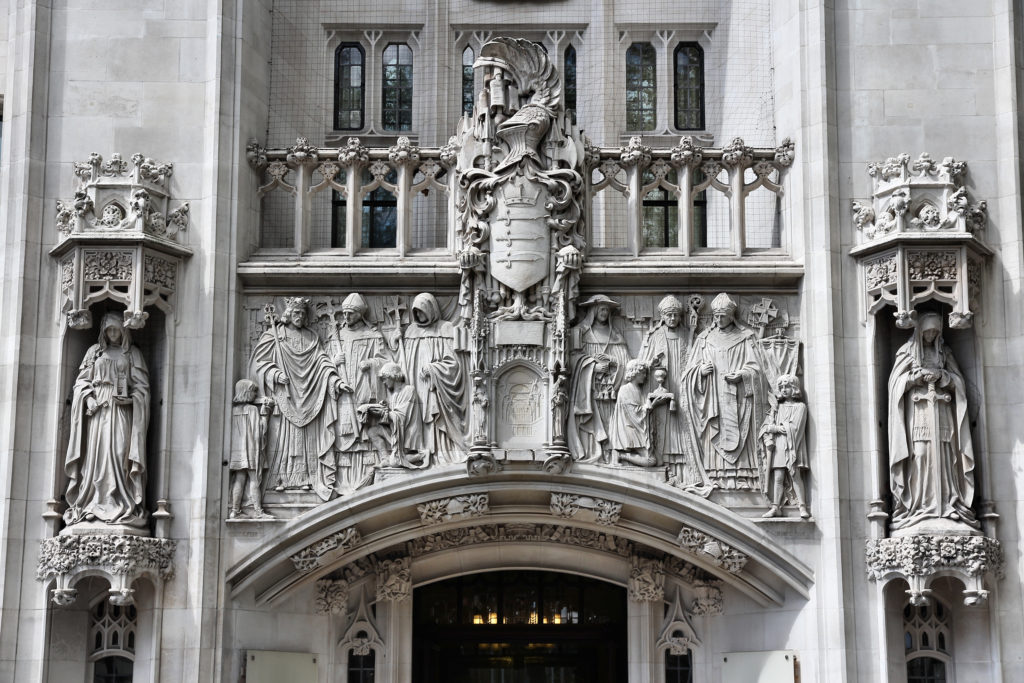
Monday saw the Supreme Court hearing the appeal in Ilott v Mitson (aka Ilott v Blue Cross and others), the long running saga involving a claim by an adult child against her mother’s estate under the Inheritance (Provision for Family and Dependents) Act 1975 (“the 1975 Act”).
Why is this case so important?
The guiding principle in English law is that a testator (the person making a will) can leave his/her estate to whomever they choose. If they do not leave a will then their estate passes under the intestacy rules set down by statute.
The 1975 Act offers a sophisticated statutory mechanism to ensure that certain classes of potential beneficiary (spouse/civil partner; cohabiting partner; child of the deceased; and other dependants) receive reasonable financial provision on a deceased’s death even if excluded from the will or by the intestacy rules.
The facts of this particular case are that Mrs Ilott’s mother died in 2004 leaving an estate worth £486,000 to three charities. She was estranged from her mother from the age of 17, when against her mother’s wishes she married her childhood sweetheart. Mrs Ilott was largely dependent on state benefits and was bringing up 5 children in a Housing Association accomodation with her husband.
In 2007 District Judge Million made an award in Mrs Ilott’s favour of £50,000. Mrs Ilott successfully appealed that award and in July 2016, the Court of Appeal allowed (1) her £143,000 to enable her to purchase a Housing Association home; (2) the reasonable costs of the purchase; and (3) payments up to a maximum of £20,000 structured in a way that Mrs Ilott could preserve her state benefits. The charities are bringing the appeal.
The Issues
To be determined by the Court is:
- Whether the Court of Appeal was wrong to set aside the award made at first instance by District Judge Million;
- Whether the Court of Appeal was wrong to take into account the financial position of the date of the appeal rather than the date of the original hearing;
- Whether the Court of Appeal was wrong in its approach to assessing Mrs Ilott’s “maintenance” need under the Act;
- Whether the Court of Appeal was wrong to structure the award in a way to allow Mrs Ilott to preserve her state benefit;
- Whether the Court, erred in its application of the balancing exercise required under the 1975 Act.
Perhaps most eagerly awaited is the Supreme Court’s interpretation of the “maintenance” standard which the courts must consider under the 1975 Act.
Is it Important?
Yes. Remarkably, this is the first time in its 40 year history that the 1975 Act has come under scrutiny by the highest court of the land. And as a reflection of how serious the Supreme Court considers the issues, it was heard by a seven-judge panel. Normally, they adjudicate in packs of five unless they consider the point to be of particular importance (last week’s 11-judge panel for the Article 50 appeal was truly extraordinary).
Mrs Ilot is unlikely to hear her fate until the New Year, some 10 years after the first award in her favour. The case will have long lasting ramifications, not only for Mrs Ilott and the charities, but for many future potential claimants for years to come.
James Burrows is a partner in the dispute resolution team at Stephens Scown in Truro. The team is top ranked in the Legal 500 guide highlighting the best lawyers in the country. If you have any queries then please do contact James on 01872 265100, by email solicitors@stephens-scown.co.uk.
